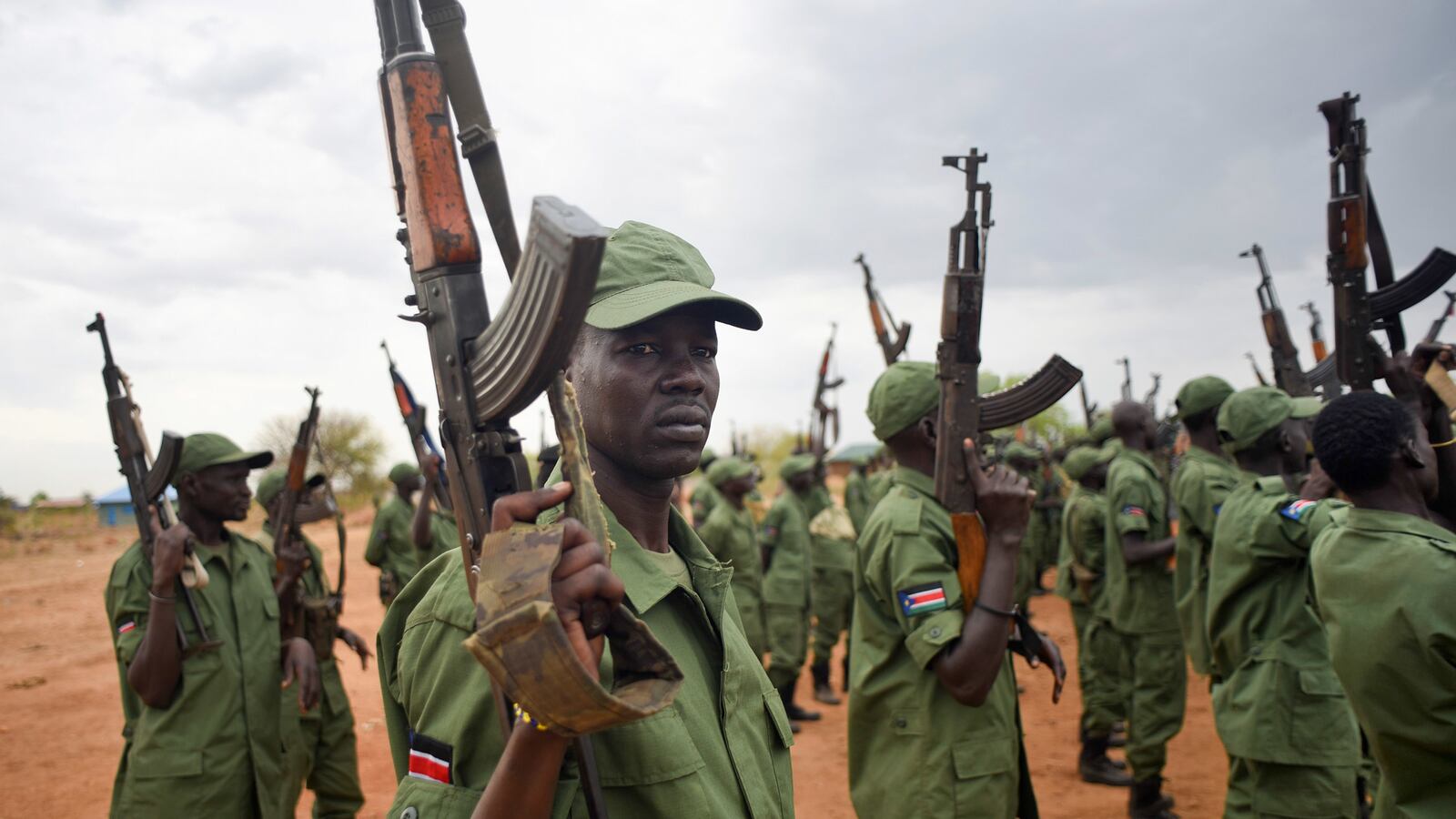South Sudan’s principal rebel leader, Riek Machar, is finally going back to Juba and his post of vice president this week, giving a boost to hopes for peace after war has raged in the world’s newest country for over two years. But his return to a country facing economic implosion and famine provides a reminder as to why this war began, what the biggest obstacles to peace are, and what must be done to overcome them.
Not just in South Sudan but throughout Africa, peace efforts aren’t zeroing in on what is emerging as the leading accelerator of most conflict: greed-fueled kleptocracies in which states have been hijacked for personal enrichment by a small group of their leaders and international accomplices. The missing ingredient in every one of Africa’s peace processes today is sufficient leverage to shift the calculations of these violent kleptocrats from war to peace.
In South Sudan, the whole country has been, effectively, kidnapped for ransom. Competing factions of the ruling party have hijacked the state and used its institutions—along with deadly force—to finance and fortify networks aimed at self-enrichment and brutal repression of dissent.
South Sudan’s leaders never seriously invested in building credible state institutions because they wanted to avoid accountability for their own criminal abuse of the country’s resources.
The war that erupted between ruling party factions in 2013 has been hell for the people, but very lucrative for their leaders. Little has been done to address this warped incentive structure that makes violence so profitable and routine.
In hijacked states, corruption is not an anomaly within the system; it is the system itself.
If leverage to impact this twisted system is the missing ingredient, then the surest way to build real influence is by hitting the leaders of rival kleptocratic factions where it hurts the most: their wallets.
“This war is all about the money,” one civil society activist told me during a recent visit to South Sudan.
Changing this picture requires a hard-target transnational search for dirty money and corrupt deals made by government officials, rebel leaders, arms traffickers, complicit bankers, and mining and oil company representatives.
Given the likelihood that Machar’s return to Juba will not end the violent competition for power, it is critical that the international community begin to build its leverage in order to respond to the next deadly off-ramp on the road to peace.
As a starting point, vulnerabilities of these South Sudanese leaders must be identified.
Here are three levers that, if pulled, could seriously impact the calculations of those South Sudanese leaders who have the power to plunge the country back into war or, conversely, build the bridges necessary for peace and reconciliation.
First, the kleptocrats at the top of the government and rebel food chains are not hiding their ill-gotten gains under their mattresses. They own expensive homes and cars in other countries, are investors in companies that feed off corruption, and have accounts in foreign banks.
In response, robustly enforced smarter sanctions that target much more senior leaders on both sides of the conflict who are stoking the flames of conflict would be a game-changer.
Given the low prospects of UN Security Council action, the U.S. should build an alliance of countries prepared to impose targeted sanctions on key high-ranking officials on both sides of the conflict who are undermining peace, and then take direct action on stolen assets, corrupt deals, and arms transfers.
Second, kleptocratic networks require access to financial institutions and the ability to move or launder their ill-gotten gains. Given the dominant role of the dollar in the international financial system, the U.S. can seek bank records from countries where assets are concentrated, develop focused anti-money laundering measures, and warn banks that are now engaged in moving corrupt South Sudanese assets that these banks could face significant penalties, including being cut off from access to U.S. or European financial systems.
Third, the kleptocrats themselves move internationally and, despite modest official salaries, most of them have their families living extravagantly and own beautiful homes outside of South Sudan; their children often attending the finest schools, about which our Sentry initiative (www.thesentry.org) is collecting evidence.
Travel sanctions on officials and their family members, if enforced, would greatly disrupt the comfort levels of leaders on both sides of the conflict.
“Citizens of my country have been taken hostage,” a South Sudanese reformer told me in Juba. “Something needs to be done to scare the hostage takers.”
In South Sudan today, war crimes actually pay. It’s not enough to support the creation of a unity government, given that these were the same officials that plunged the country into war in the first place. But going after the wallets of the kleptocrats could change calculations sufficiently to alter this deadly—and profitable—status quo.






